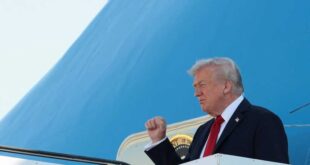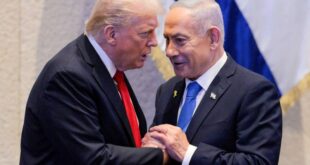Dr. Shehab Al-Makahleh
This is a summary of a paper I presented during a lecture at one of the leading global research centers, outlining my perspective on the similarities and differences between U.S. President Donald Trump and his Russian counterpart Vladimir Putin regarding domestic and foreign policy, and the impact of these dynamics on the world.
In the shifting theatre of world politics, two men—Donald Trump and Vladimir Putin—continue to dominate the stage not because they represent stability, but because they embody the return of political will in an age hollowed out by bureaucracy. Their recent statements, though scattered across interviews and appearances, outline a disturbing coherence: the belief that the old global order has collapsed, and that a new, more transactional system—rooted in raw interest and power—is emerging.
Trump’s recent visit to the United Kingdom, draped in the politeness of protocol but thick with symbolism, underscored an uncomfortable truth for the Western alliance: the United States may no longer lead by moral consensus, but through negotiated dominance. The reception accorded to Trump in London—quietly respectful yet strategically choreographed—signaled that the British establishment, particularly the City of London’s financial nucleus, still sees itself as the unseen hand behind Western economic coordination.
For Putin, the disintegration of the unipolar world is less an opportunity than a vindication. His statements in Moscow, often delivered in the tone of a man commenting on the weather, reflect the conviction that history is reverting to its natural form: spheres of influence defined by geography, culture, and the willingness to use force. Both men, in their own idioms, speak to a future where diplomacy is no longer the management of peace, but the management of disorder.
The Ghost of Empire
To understand the current moment, one must look at the implicit understanding between Trump and Putin—not as allies, but as parallel architects of disruption. Both are products of imperial nostalgia. Trump’s “Make America Great Again” and Putin’s quest for a “multipolar world” are mirror slogans for the same psychological impulse: the recovery of dignity through dominance.
Trump’s rhetoric on NATO and European dependence remains carefully provocative. His insinuation that Europe must “pay its way” within the alliance is less about accounting than about sovereignty—reminding allies that the protection they enjoy is conditional. Britain, unlike the continental Europeans, reads this language fluently. Its elite, deeply embedded in the transatlantic financial network, understands that Washington’s power lies not only in aircraft carriers but in control of liquidity, credit, and risk. The City of London, despite its diminished imperial shadow, remains the clearing house for this order—a discreet broker between American might and global capital.
Putin, meanwhile, views the West’s internal divisions as the beginning of a post-liberal correction. His claim that the Western system “feeds on crisis” is not entirely wrong. The political economies of the U.S. and Europe, addicted to debt-fueled growth and defense spending, now rely on the perpetuation of insecurity. The Gaza conflict, Ukraine, and even the Taiwan question serve as different theaters for the same systemic function: the externalization of instability.
Gaza: The Managed Crisis
The Gaza war, now framed as a humanitarian catastrophe and a regional powder keg, is also the stage where the hidden logic of power plays out most vividly. Officially, the conflict is presented as a battle between Israel and Hamas, with the United States cast as reluctant mediator. In reality, Gaza has become a geopolitical pressure valve—a distraction and a testing ground for new alignments.
From Washington’s perspective, the timing of the “temporary peace initiatives” and regional summits is telling. With the U.S. electoral season nearing, the administration’s calls for de-escalation mask a deeper calculus: to prevent a wider regional confrontation that could entangle American forces while keeping the region sufficiently unstable to justify continued military presence.
For London, the calculus is financial. Each flare-up in the Middle East reshapes global energy markets and revalidates the City’s centrality in risk management, commodity trading, and insurance. For Moscow, Gaza serves another purpose. It diverts Western attention from Ukraine and exposes the hypocrisy of a rules-based order that tolerates civilian casualties when politically convenient.
Trump’s remarks on Gaza, though outwardly sympathetic to Israel, carry an undertone of strategic indifference. He has hinted more than once that “the world has to learn to solve its own problems,” a phrase that translates into a future where America no longer shoulders the burden of global moral leadership. For Putin, this is music to the ears. The Kremlin’s foreign policy thrives on precisely such abdications—the retreat of moral rhetoric from the field of power politics.
The Politics of the Post-Truth Era
Both Trump and Putin have mastered the art of political theatre in the post-truth age. They understand that narratives, not policies, now shape perception—and perception shapes legitimacy. Trump’s public statements oscillate between bravado and irony, allowing him to speak to multiple audiences at once. His praise for Putin’s “strength” during his previous campaigns was less ideological than performative—a reminder to domestic and foreign audiences alike that he sees leadership as willpower, not consensus.
Putin, for his part, has redefined truth itself as a function of sovereignty. The Kremlin’s communications strategy—its selective use of information, denial, and revelation—creates a permanent fog in which facts serve as tactical instruments rather than moral anchors. Both leaders exploit the vacuum created by institutional decay in the West, where the traditional arbiters of truth—media, academia, even intelligence agencies—have lost credibility.
The result is a global conversation governed not by enlightenment but by echo chambers. Gaza, again, illustrates this perfectly: every statement, every image, every diplomatic visit becomes fodder for competing realities. For the West, the narrative centers on humanitarianism; for the East, it is about imperial hypocrisy.
The Future as a Marketplace
Trump’s return to power crystallized the emerging world order into something both familiar and dangerous—a marketplace of sovereignties. Under this paradigm, alliances become contracts, and moral principles become negotiable assets. Washington will no longer speak the language of global responsibility, but of selective partnership.
Putin’s Russia already operates within this framework. Its outreach to Africa, the Middle East, and Latin America is based not on ideology but on trade in influence: security for resources, weapons for legitimacy. What makes the current era distinct is that the Western world, once allergic to such cynicism, is now adopting it. The quiet recalibration of British foreign policy—balancing between Washington’s strategy and its own financial interests—suggests that moral multilateralism has become a luxury good.
In this sense, the Gaza conflict, like Ukraine, functions as both tragedy and template. It shows how crises are no longer accidents but instruments—managed, prolonged, and monetized. Insurance markets, defense contracts, and reconstruction tenders turn bloodshed into balance sheets. The political theatre of humanitarian concern conceals an economic substratum that few dare to name.
Putin’s Patience, Trump’s Impulse
Putin’s approach to this landscape is one of strategic patience. He understands that the Western world is consuming itself through contradictions—between democracy and security, freedom and control, wealth and moral fatigue. His recent speeches stress “the end of Western hegemony” not as a call to arms but as a fait accompli.
Trump, by contrast, operates through disruption. His worldview, transactional and improvisational, treats instability as opportunity. He may lack Putin’s philosophical depth, but he shares his instinct: that power is not inherited through institutions but seized through perception.
This convergence, though unspoken, defines the politics of the coming decade. Whether Trump returns to office or not, his worldview has already infected Western politics. The idea that alliances are negotiable, that truth is optional, and that order is an illusion has become the unacknowledged creed of the post-liberal age.
The Hidden Axis
Behind these shifts lies an informal axis—not of ideology, but of method. Trump, Putin, and to a lesser extent leaders such as Narendra Modi and Recep Tayyip Erdoğan, represent a new generation of sovereign populists. They reject universalism, yet they are globalists in practice; they deride bureaucracy, yet they thrive on the chaos it produces.
In this system, Gaza is not an exception but an exemplar. The conflict’s persistence is a reflection of its utility. Each power—Washington, Moscow, London, and regional actors—uses it to test narratives, calibrate alliances, and manage domestic sentiment.
The World After Order
What emerges from the Trump–Putin dynamic is not a formal alliance but a shared intuition: that the world is entering an age where power is naked again. The veneer of institutions remains, but their authority has evaporated. The old certainties of the post-1945 order—American moral leadership, European unity, global governance—are dissolving into a system of perpetual bargaining.
Gaza, Ukraine, Taiwan—these are not isolated crises but mirrors reflecting the same transformation: from ideology to interest, from order to orchestration. The West, still clinging to the language of democracy, is quietly governed by the financial logic of the City of London and the strategic instincts of men like Trump. The East, led by Putin’s Russia, watches with a mixture of satisfaction and foreboding.
The irony is that both sides are right about each other—and wrong about themselves. The world that is coming will be neither unipolar nor multipolar. It will be, as one might put it in The Economist’s idiom, unstructured: a network of powers bound not by values but by necessity. In this new age of calculated chaos, Trump and Putin are less the cause than the symptom—a reminder that history, once again, has escaped the institutions built to contain it.
 Geostrategic Media Political Commentary, Analysis, Security, Defense
Geostrategic Media Political Commentary, Analysis, Security, Defense





